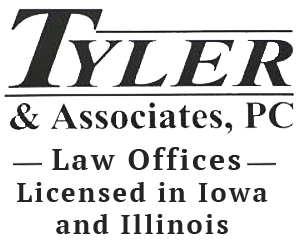Losing a loved one to a premature death in a workplace accident is always devastating, but the situation can be particularly dire when your family relied upon that loved one for your financial support.
When the worst happens, and a loved one dies due to a work injury or illness, Iowa’s workers’ compensation laws make sure that there are benefits available to their survivors.
Who is entitled to receive death benefits?
Workers’ compensation will provide benefits that alleviate the financial burdens faced by a deceased worker’s dependents. This includes:
- A surviving spouse, who may receive benefits either until remarriage or, if not remarried, for life (and some may be entitled to a lump-sum settlement upon remarriage). This is true even if the deceased worker and their spouse did not cohabitate.
- The worker’s dependent children, who may receive benefits either until they turn 18 years of age or until they reach 25 years of age if they remain dependent (such as full-time students).
- Other dependents who may not fit the above two categories, such as grandchildren or other relatives who were dependent upon the deceased.
What benefits are available?
The weekly benefit rate for survivors depends on the amount of gross wages the deceased worker received during their lifetime. Generally, beneficiaries can expect to receive 80% of the deceased employee’s weekly gross income minus taxes. While this may not sound like a lot, it could be just enough to keep your family financially stable as you move through this tragedy. In addition, worker’s comp will pay for the deceased’s reasonable funeral and burial expenses, up to 12 times the statewide average weekly wage at the time of the worker’s death.
What happens if benefits are delayed or denied?
Workers’ compensation was designed to be a relatively easy “no-fault” system that negates the need for every injured worker or their survivors to file a lawsuit – but things don’t always go as planned. Claims are unfairly delayed, devalued and denied all the time. If that happens to you, it may be time to seek the legal guidance you’ll need to help you navigate the system successfully.

